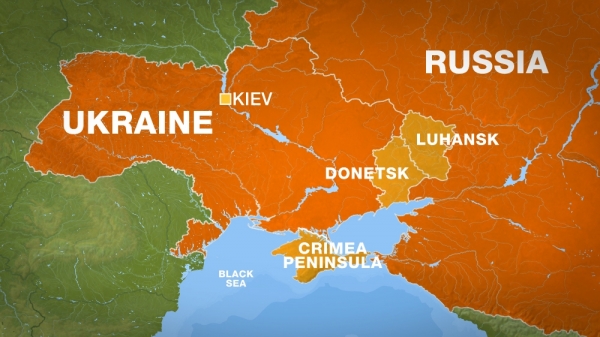The armed conflict in eastern Ukraine between the Ukrainian government and Russian armed groups has now entered its fifth year. Since Russia occupied Crimea in 2014, Russian authorities have continued to target pro-Ukraine activists and Crimean Tatars because of their vocal opposition to Russia’s abuses and occupation of the peninsula. From 14 April 2014 to 15 February 2019, serious human rights and humanitarian violations were registered. The OHCHR, in particular, recorded 3,023 civilian deaths.
The present report, based on the work of the United Nations Human Rights Monitoring Mission in Ukraine (HRMMU), is based on 152 in-depth interviews with victims and witnesses, and covers the period from 16 November 2018 to 15 February 2019. During the reporting period, hostilities continued to affect the civilian population, with total impunity for conflict-related abuses registered throughout all of 2018.
According to relevant data, exchanges of fire across the contact line continue to impact residential areas, resulting in civilian casualties and damage to civilian property and infrastructure, including water facilities and electricity lines. About 5.2 million conflict-affected persons continue to suffer due to the lack of access to basic services, such as water and heating. There is also a lack of adequate housing and healthcare, as well as an absence of mechanisms for remedy and reparations.
According to the Organization for Security and Co-operation in Europe (OSCE) Special Monitoring Mission, both sides of the conflict are carrying out indiscriminate or deliberate attacks, with civilians injured or killed, mostly from shelling and light weapons fire. In several Ukrainian cities, members of groups advocating hate and discrimination constantly carry out violent attacks, threats, and intimidation against Roma people, LGBT people, and human rights activists. In most cases, police failed to respond or effectively investigate.
OHCHR is concerned about the practice of arbitrary arrest, incommunicado detention, torture and ill-treatment of civilians in government-controlled territory. Individuals in areas controlled by ‘Donetsk People’s Republic’ and ‘Luhansk People’s Republic’ continue to be subjected to ‘administrative’ arrest and ‘preventive’ arrest, respectively, which may constitute enforced disappearance. Due process and fair trial violations also persist as a result of the pervasive practice of prolonged pre-trial detention. OHCHR has also documented the use of force and coercion to obtain confessions and admissions of guilt without any material evidence.
The government has also taken further steps to restrict freedom of expression, association, and religion. Discrimination and violence by radical groups promoting hatred has put ethnic minorities, activists, and journalists at risk.
The Parliamentary Assembly of the Council of Europe (PACE) issued a resolution calling on Ukraine to facilitate the “delivery of humanitarian assistance to the war-affected territories.” It also called on the Russian occupying authorities to respect human rights in Crimea. The UN working group on enforced disappearances and the UN special rapporteur on torture, on the other hand, paid separate working visits to Ukraine in June, and both raised concerns about impunity for continuing cases of enforced disappearances and torture.
In June 2018, the Council of Europe’s (CoE) Commissioner for Human Rights urged Ukrainian authorities to step up efforts to prevent attacks against civilians and prosecute those responsible for such conducts. In July, a group of UN experts called on the government to protect Roma from attacks and ensure adequate compensation for victims.
OHCHR notes that, by virtue of the continued occupation of Crimea by the Russian Federation, an international armed conflict continues to exist between the two States in Crimea and international humanitarian law continues to apply there. In this regard, although Ukraine is not a member of the International Criminal Court (ICC), it has accepted the court’s jurisdiction over alleged crimes committed on its territory since November 2013. The ICC Prosecutor’s preliminary examination as to whether it should open an investigation into abuses committed during the armed conflict remains ongoing.
To read more, please visit:
https://www.hrw.org/world-report/2019/country-chapters/ukraine
https://www.ohchr.org/Documents/Countries/UA/ReportUkraine16Nov2018-15Feb2019.pdf







